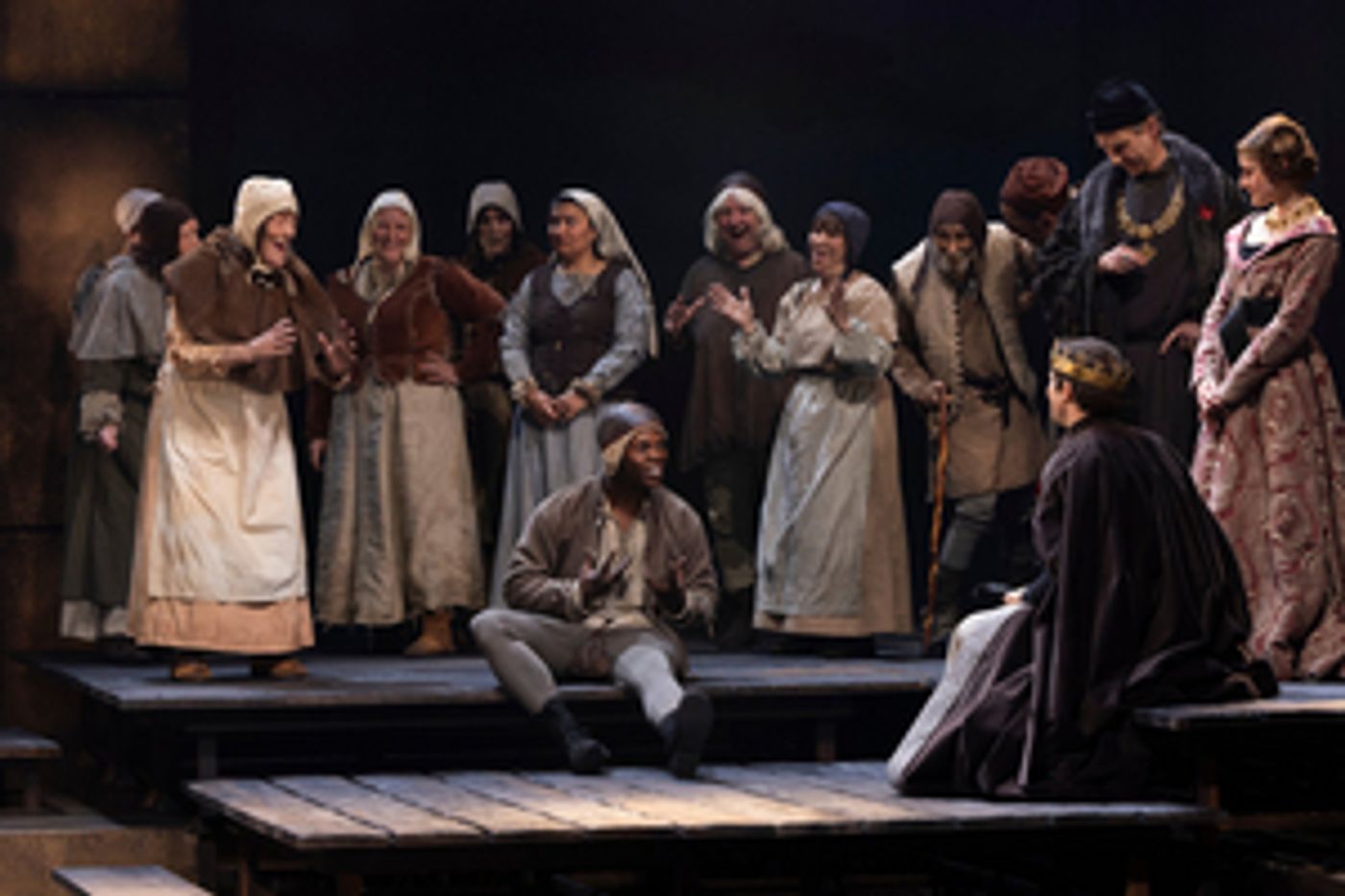Review: HENRY VI: REBELLION and WARS OF THE ROSES, Royal Shakespeare Theatre
The RSC gives us plenty of blood and guts as England tears itself apart

You'll remember Game of Thrones - fantastic until that final season farrago - and if you liked that, you'll like these epic plays too. No dragons of course, but plenty of fire as factions dispute the Throne of England with words and weapons.
We open on Henry VI, King before his first birthday on the sudden death of his father, the glorious Henry V, blithely giving up his French lands in return for the hand of Margaret of Anjou, a politically expedient marriage between two personalities who could not be more opposed. The King is bookish, religious, asexual; she is dynamic, ambitious and in love with the Duke of Suffolk. As the simmering tension between the Houses of Lancaster (openly wearing the red rose) and York (white rose) spills over into civil war, the King prays for peace while his Queen seizes a sword.
This is early Shakespeare, anxious to please his crowd, probably urged to sex it up by Kit Marlowe - it's the screenplay he would have written for Michael Bay. We're never far away from a viciously aggressive conversation, a clashing of metal on metal, a re-aligning of loyalties. "Trust nobody" would be wise counsel - instead, Henry trusts everyone.
Mark Quartley plays him as a medieval Fredo Corleone, a man short on self-esteem, easily swayed, too eager to please and doomed by his inability to escape the vipers' pit to which his birth has condemned him. Minnie Gale arrives like a whirlwind, kissing him hard on the lips, but her Margaret is no fool, seeing her destiny can only be shaped by her own will and by her implacable resistance to her myriad of enemies.
Oliver Alvin-Wilson has a lot of fun with his Duke of York, all alpha-male aggression, the point of his sword mattering a lot more to him than the point of his arguments. Other courtiers circle about the King, taking sides and weighing influence. There's even the Kentish upstart, Jack Cade (a Rasputiny Aaron Sidwell) to lead the common people in a revolt that reaches London, but, as is always the case in Shakespeare (who knew what his Queen wanted to see) the threat to the established order is soon put down and war is prosecuted by nobles not nonentities.
It's great to see the commons represented on stage by the RSC's "Shakespeare Nation" and "Next Generation Act" partners, bringing its community participation programme and talent development programme to its biggest stage. They all look tremendous too, decked out by Hannah Clark as peasants in a Bruegel painting.
Director, Owen Horsley, turns the heat up in the second part of this double-header, as war consumes England, bodies strewn across battlefields disfiguring Henry's disintegrating kingdom. York is killed (slowly, as so many are in this play - Shakey knew his audience) and his sons come to the fore, Ashley D Gayle the impulsive, licentious eldest, Edward, who would become the fourth of that name to wear the Crown; Ben Hall as uncertain George; and Arthur Hughes as Richard, the deformed, underestimated youngest.
Hughes is electrifying in the role. Okay, he gets all the best lines, but he's continually conspiring with us across the fourth wall, showing us his ambition, his ruthlessness and, most of all, his charisma. This is the mature playwright coming through, building an unforgettable character, making us squirm with our conflicting feelings of admiration and disgust for what we know he is doing and what he will do. He is the young Michael Corleone and yet another example of how power seems to accrue to the worst possible holders thereof - so plus ça change.
Few who see these magisterial versions of Shakespeare's founding myths of the English identity will not return to see Hughes speaking out of the corner of his mouth, eyeing us as much as his next victim, rise and fall in the third part of the trilogy. But his Richard's winter of discontent is scheduled for the summer - until then we can lament poor Henry and reflect on the follies of standing by as polity's essential good faith crumbles, whether it be 1422 or 2022.
Photo by Ellie Kurttz
Reader Reviews

Videos

